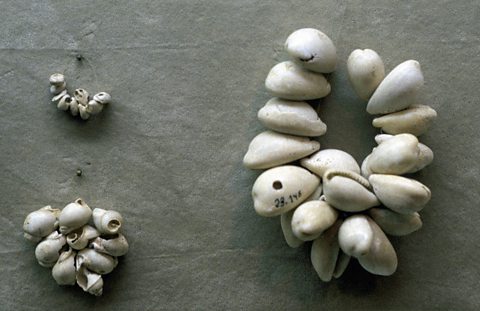Effects of the trade on African societies in West Africa
Impact on the economies of West Africa and West Central Africa
Between the 1680s and the 1780s the value of Africa's Atlantic trade rose six-fold. At its peak trade was worth ВЈ47 million.
By the mid-18th century, enslaved people were Africa's main export. In Western Africa the slave trade represented as much as 95 per cent of the value of their exports.
The price Europeans paid for an enslaved people rose from ВЈ3 per head in the 1680s to ВЈ30 by 1800. It has been estimated that over 10 million Africans were transported across the Atlantic in the 18th century.
European goods brought to Africa
European ledgers reveal the many things traded in exchange for people, including: cloth, hard cash (cowries), iron bars, guns, gun powder, textiles, pottery, glassware, beads, ironmongery, horses and brandy.
Cowrie shells

Cowries, oval shells of different sizes with serrated edges, were one of the largest commodities imported by the British. They became a vital part of the system of exchange between Europeans and African traders. Slavers paid around 25,000 shells for an enslaved person.
The impact of the gun trade
The mass introduction of firearms was the single most significant technological innovation brought by Europeans to West Africa. Kings and warlords were anxious to trade with Europeans to acquire guns.
Twenty million guns were imported to Africa in the second half of the 18th century. Many guns imported by the British were manufactured in Birmingham.
African rulers exchanged captives for guns. Rulers were in competition with each other, so the acquisition of guns provided an edge over their rivals. This increased their drive to capture and sell enslaved people. The new availability of guns was a direct consequence of the slave trade.
The mass importation of guns to trade for enslaved people altered the conduct of warfare in Africa and changed the balance of power between kingdoms.
At the height of the Atlantic trade only states equipped with guns were able to resist attacks from their neighbours. The demand for enslaved people, combined with the supply of guns, encouraged rulers to attack neighbours.